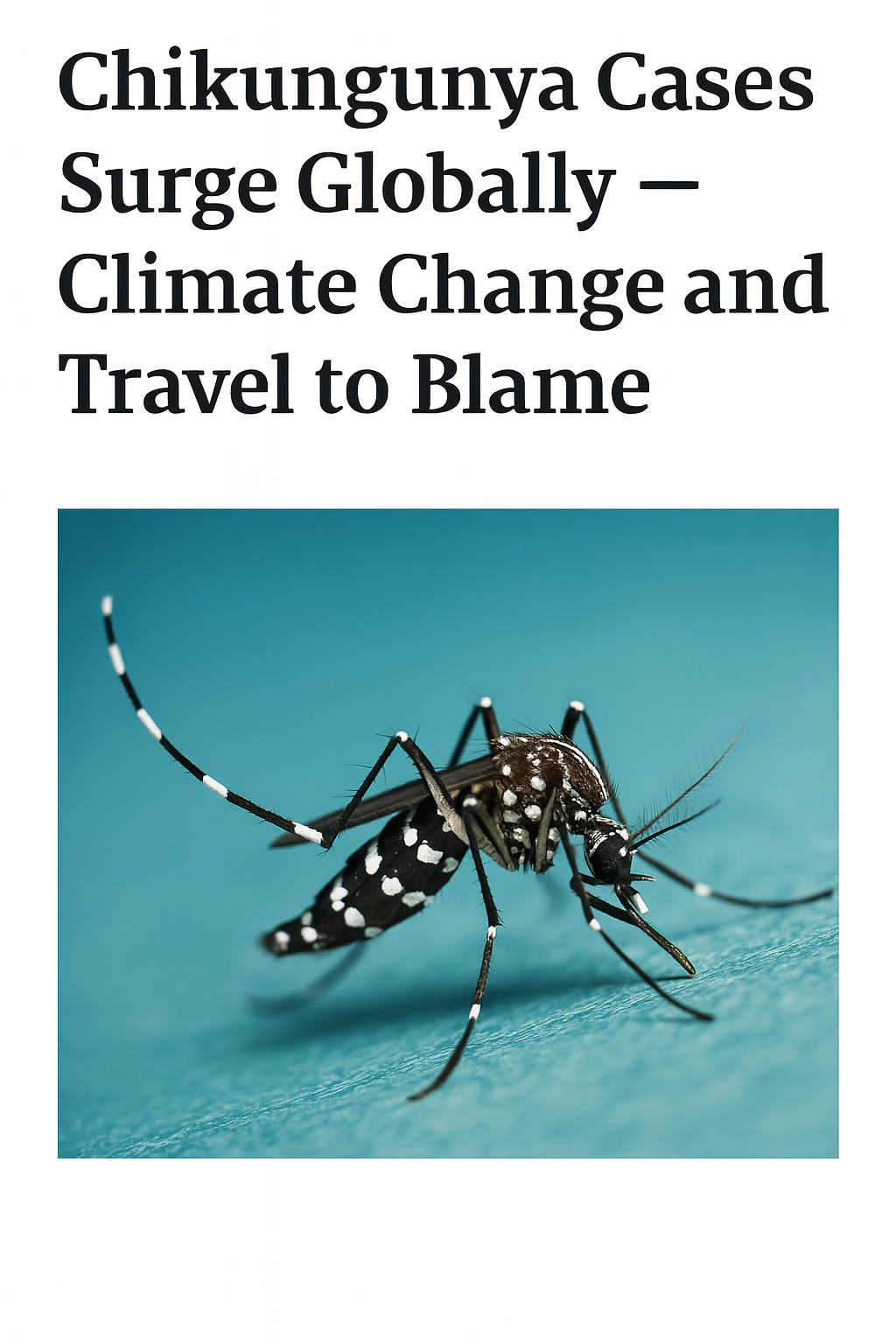
A significant global surge in chikungunya cases is sounding alarms across public health agencies, including the World Health Organization (WHO). Once confined largely to tropical zones, the virus is now extending its reach into Europe and Asia, driven primarily by increased global travel and changing climate conditions.
Chikungunya Spreads Beyond Tropics
Recent data from mid-2025 reveal outbreaks in China’s Guangdong province, with over 7,000 confirmed cases in Foshan alone—labelled as the region’s largest resurgence yet. Simultaneously, Europe is experiencing an uptick in both imported and locally transmitted infections: France has reported approximately 800 cases, including 12 local clusters, while Italy also logged its first within-country transmission. (turn0news24)
The WHO has expressed concern, noting how global travel and warming temperatures—specifically rising humidity—create conducive environments for the Aedes mosquito, the primary chikungunya vector. (turn0news23)
Key Drivers Behind the Resurgence
The convergence of climate change and expanded travel has disrupted the traditional boundaries of chikungunya transmission. In the Pacific Islands, hotspots like Fiji, Samoa, and Tonga are grappling with cases on a scale unseen in recent history—raising broader concerns about preparedness and surveillance systems. (turn0news21)
While current risk to Europe and North America remains moderate, health authorities emphasize prevention through mosquito control, personal protective behaviors (like using repellents and long sleeves), and vaccine research prioritized in affected regions. (turn0news23)
Preventive Measures & Public Response
Public health agencies urge travelers to avoid mosquito bites, especially in endemic regions. For individuals under 65, vaccination—where available—is being recommended. Maintaining transparency about risks and accessible safety guidance will be key to preventing wider outbreaks.
Why This Matters Globally
Chikungunya’s evolving pattern illustrates how climate change is redefining infectious disease threats. It’s no longer a tropical issue—it’s pressing for countries unprepared for mass mosquito spread. Strengthening global health surveillance and support systems must be part of the response.
WHO raises alarm over chikungunya spread en.wikipedia.org+4reuters.com+4thesun.ie+4en.wikipedia.org+1thesun.ietheguardian.com
Leave a Reply